RockOn 2021 Summer Workshop
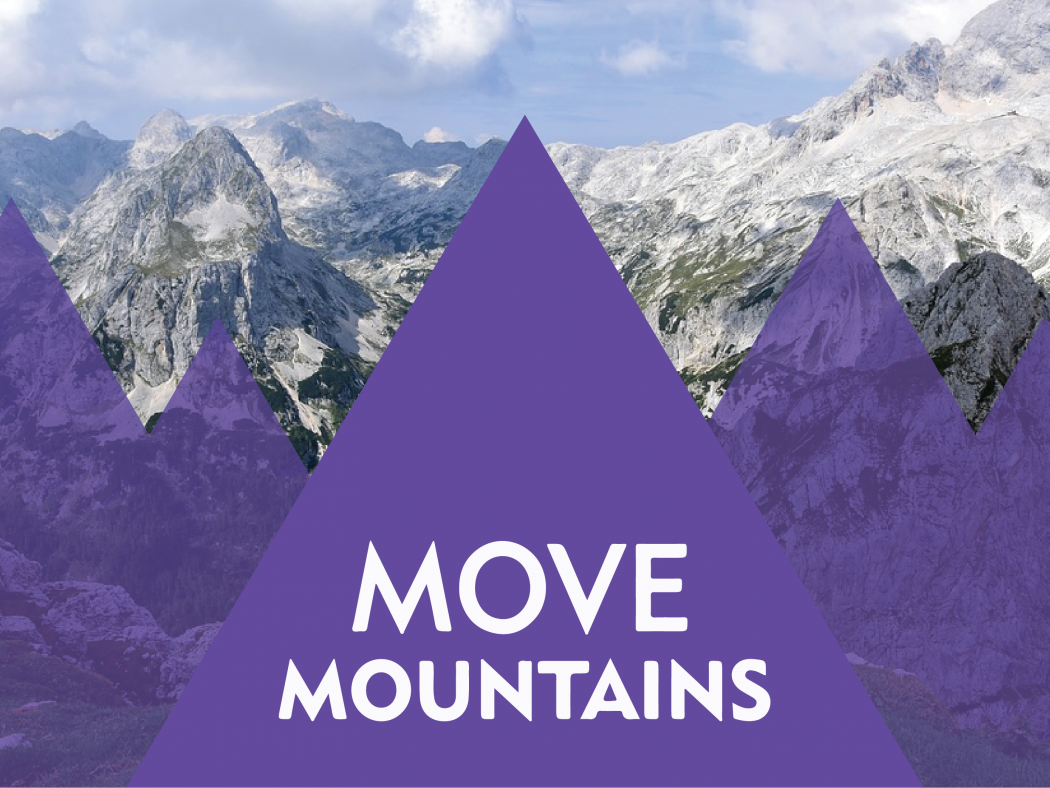
The RockOn workshop is a building block to become a part of the team for the ACC RockSat team. The RockOn workshop gives an excellent walk-through of building, testing, and troubleshooting a scientific payload for a NASA sounding rocket flight and the best part is your project gets to go to space! My experience with the 2021 program was different from the typical experience every other year due to Covid we had the workshop online. This meant that the normal week-long experience flying to Wallops, Virginia, and building the whole payload in a week was off the table. However, Chris Koehler, the director of The Colorado Space Grant Consortium, and everyone running the program did a great job making kits for all participants and shipped them to us at each school. The participating teams had about a month and a half to build and send back our payloads to be launched. The director Chris Koehler and his team made some incredible videos that did a great job in helping at every step of the building process!
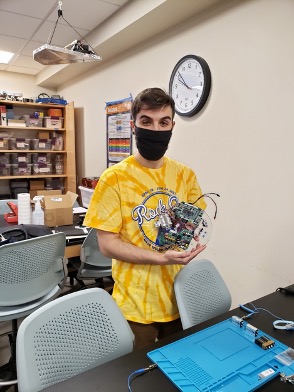
Why I Joined
I kind of found the RockOn program by accident. I knew I wanted to find some group or project to be a part of to start adding things to help build up my resume and experience. I believe I had gotten an email from ACC about things to look out for that would be happening soon. I read a little paragraph about the RockOn program and how to apply. I applied to be a part of the team that day. I had written some responses to a few questions they asked on the application. I was excited and nervous to see what the experience would hold for me. I am an engineering transfer student at ACC, and my goal is to join CU Boulders Aerospace Engineering program after ACC. Being a part of this team was the perfect opportunity to experience an actual aerospace engineering program. It was perfect for me!
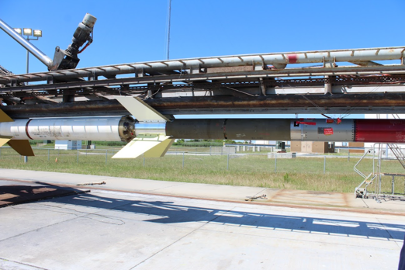
This is a picture of this year’s sounding rocket up close!
What Was Interesting
There were so many new experiences for me from this workshop. Before this, I had never soldered anything, worked with PCBs, used a voltage meter, nor had much experience coding. Learning and growing to become confident in these basic skills like soldering was incredibly valuable for me. I think testing the components after soldering each one was my favorite part. It was incredible to see that my connections were the reason the Arduino Computer was able to send commands and collect data off of the sensors I had made and installed.
By far, the most exciting sensor we had was a Geiger counter. A Geiger Counter is an instrument that counts the number of particles of radiation that hit the Geiger tube. This sensor is used in spacecraft and other places to detect radiation levels. We built the whole Geiger counter up from the Geiger Tube and connected it to a PBC that controlled the power it received, and gathered that data from the counter.
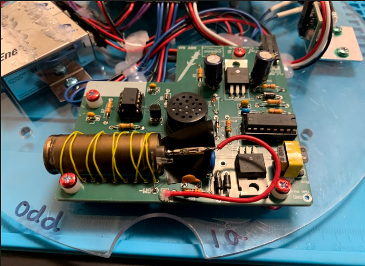
What Was the Hardest Thing About the RockOn Workshop?
I think the most challenging part was double-checking our work. It was a crucial step to avoid compounding mistakes, and that is what made it stressful. I needed to test each pin for connectivity or check each solder joint for a bad connection. This step was both essential and tedious. Cold solder joints can be hard to find later!
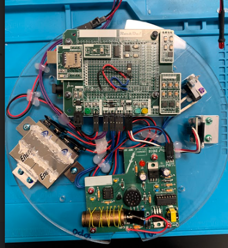
How the Launch Experience Was
Getting to watch the launch from a live feed was a real awe-inspiring experience. Since I started my journey to become an Aerospace Engineer, I have had a goal and milestone of putting something into space. Knowing the project that I had built, tested, and poured time into was going to space was an incredibly surreal experience.
Here is a link to the launch! RockOn! Student Sounding Rocket Launch. This link is set to 1 minute before launch.
Questions I Had / What Surprised Me
I feel like I just jumped at this opportunity before knowing much about what the RockOn Workshop was. So I was shocked that there were programs for undergrad students to participate in and actively help the scientific community in such a big way! The data we collect is helping further the understanding of the upper layers of the atmosphere, an area that is extremely difficult to study. These sounding rocket experiments and other high-altitude balloons are the only way to gather data in these higher parts of the atmosphere.
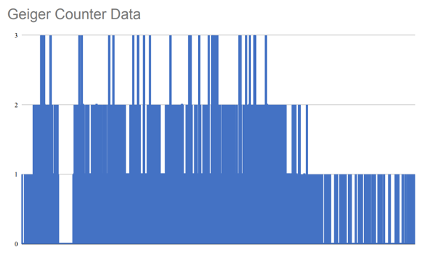
What to Expect
A checklist for what to expect:
- You will be building a sensor payload for a sounding rocket experiment.
- You will learn how to solder, code, troubleshoot, and work as a team.
- You will have something you built sent into space!
- Your job is not done once the payload flies. A big part of learning is analyzing the data after and interpreting that data.
- The RockOn Workshop teaches you all of the basics needed to be a part of the RockSat team, which has the opportunity to design their very own experiment for a sounding rocket flight!
Archive
- 2025 (10)
